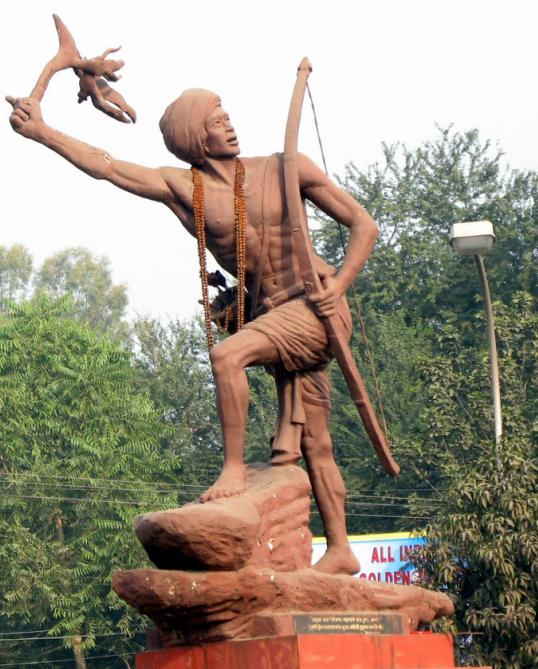Jharkhand
Birsa Munda
- 26 May 2025
- 4 min read
Why in News?
The Lok Sabha Speaker Om Birla visited the Jail Museum in Ranchi, Jharkhand, on 25th May 2025 and paid tribute to Bhagwan Birsa Munda.
- The visit aimed to honor Munda’s contribution to tribal rights and cultural heritage.
Key Points
- About: Birsa Munda was a tribal freedom fighter, religious reformer, and folk hero, who played a key role in tribal resistance against British rule in India.
- Early Life:
- Birth: Born in Ulihatu on 15th November 1875, now in Jharkhand's Khunti district, to a poor sharecropper (sajhadar) family.
- Community: Belonged to the Munda tribe, a major Adivasi community of the Chotanagpur plateau.
- Early Name: Daud Munda, after his father briefly converted to Christianity.
- Education and Early Influences:
- Attended local schools under the guidance of Jaipal Nag.
- Studied at a missionary school and later at BEL school in Chaibasa for four years.
- Was influenced by Christianity but later rejected it due to cultural and religious differences.
- Influenced by Vaishnavism and Anand Panre (a munshi), leading him to form his own spiritual sect.
- Became known as Bhagwan (God) by his followers and founded the Birsait sect.
- He is lovingly called "Dharti Aaba" (Father of the Earth) by his followers.
- Beliefs and Teachings:
- Promoted monotheism through the worship of Singhbonga, a tribal deity.
- He campaigned against alcoholism, belief in black magic and superstitions, and forced labour (beth begari).
- Encouraged clean living, hygiene, and spiritual unity.
- Taught pride in tribal culture and community land ownership.
- Resistance Against Colonial Injustice:
- British land policies destroyed the Khuntkatti land system, where land was communally owned.
- Zamindars and thikadars (middlemen) began exploiting tribals, turning many into bonded labourers.
- Birsa educated his people about these injustices and urged them to reclaim their rights.
- Early Life:
- The Ulgulan (Great Rebellion):
- Causes of the Uprising:
- Loss of land, economic hardship, forest alienation, and cultural erosion pushed Birsa to act.
- Gave the call for Ulgulan (rebellion) and urged tribals to stop paying rent.
- Slogan of Resistance: “Abua raj ete jana, maharani raj tundu jana” (Let the queen’s rule end, and our rule begin).
- Course of Revolt:
- The revolt began in 1895 as a response to land encroachment and forced labour policies imposed by the British Raj.
- In 1895, Birsa Munda was arrested on charges of rioting and jailed for two years.
- After his release in 1897, he resumed his efforts, moving village to village to gather support and promote the vision of a tribal-led kingdom.
- Birsa Munda died of cholera in 1900, marking the end of the active phase of the revolt.
- Aftermath and Legacy:
- In 1908, the Chotanagpur Tenancy Act was passed:
- Banned land transfers from tribals to non-tribals.
- Recognized Khuntkatti rights.
- Banned beth begari (forced labour).
- Honouring Birsa Munda:
- Since 2021, 15 November is celebrated as Janjatiya Gaurav Divas (Tribal Pride Day).
- He is remembered as a brave leader, spiritual guide, and visionary.
- Despite dying young, he showed great strategy, courage, and leadership.
- In 1908, the Chotanagpur Tenancy Act was passed:
- Causes of the Uprising:







